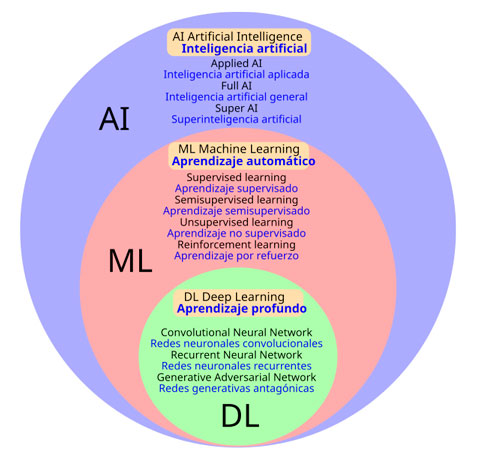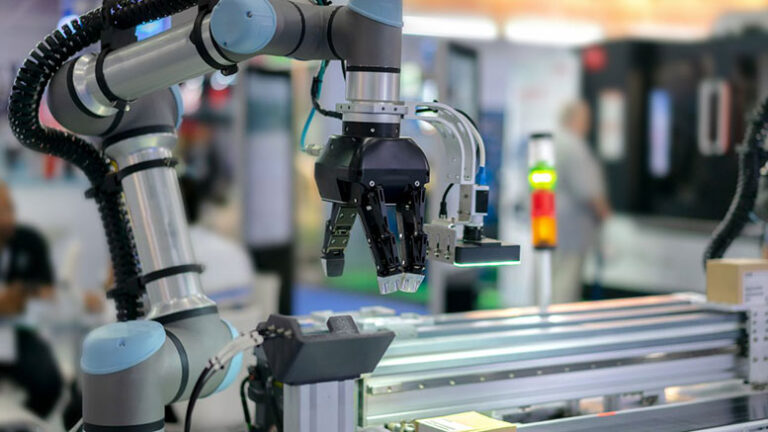What is Artificial Intelligence (AI)
Table of Contents
Artificial Intelligence, often abbreviated as AI, refers to the simulation of human intelligence in machines that are programmed to think and act like humans.
Artificial Intelligence (AI) has become a buzzword in the tech industry in recent years, with companies across various sectors incorporating AI into their products and services.
From self-driving cars to virtual assistants, AI is revolutionizing the way we interact with technology.
In this article, we will explore the concept of AI, its applications, benefits, and potential challenges.
What is Artificial Intelligence (AI)?
Artificial Intelligence, often abbreviated as AI, refers to the simulation of human intelligence in machines that are programmed to think and act like humans.
This includes tasks such as learning, problem-solving, speech recognition, and decision-making.
AI is achieved through the use of algorithms and data that enable machines to learn from experience, adapt to new information, and perform tasks that traditionally required human intelligence.
Types of Artificial Intelligence

There are three main types of AI: narrow AI, general AI, and superintelligent AI.
Narrow AI, also known as weak AI, is designed to perform a specific task, such as speech recognition or image classification.
General AI, on the other hand, is a more advanced form of AI that can perform any intellectual task that a human can do.
Superintelligent AI, the most advanced form of AI, surpasses human intelligence and is capable of outperforming humans in every cognitive task.
Applications of Artificial Intelligence
AI is being used in a wide range of industries, from healthcare to finance to transportation.
In healthcare, AI is being used to diagnose diseases, predict patient outcomes, and personalize treatment plans.
In finance, AI is being used to detect fraud, automate trading, and provide personalized financial advice.
In transportation, AI is being used to develop self-driving cars, optimize traffic flow, and improve public transportation systems.
Benefits of Artificial Intelligence
There are many benefits to using AI in various industries.
One of the main benefits of AI is its ability to automate repetitive tasks, freeing up human workers to focus on more complex and creative tasks.
AI can also analyze large amounts of data quickly and accurately, leading to more informed decision-making.
Additionally, AI can improve efficiency, reduce costs, and enhance the overall customer experience.
Challenges of Artificial Intelligence
While AI has many benefits, there are also challenges associated with its use.
One of the main challenges of AI is the potential for bias.
AI algorithms are only as good as the data they are trained on, and if the data is biased, the AI system will also be biased. This can lead to unfair outcomes and discrimination.
Another challenge of AI is the potential for job displacement.
As AI becomes more advanced, there is a risk that many jobs will be automated, leading to unemployment for many workers.
Ethical Considerations
As AI becomes more prevalent in society, there are ethical considerations that must be taken into account.
One of the main ethical considerations of AI is the issue of privacy. AI systems often collect and analyze large amounts of personal data, raising concerns about data privacy and security.
Additionally, there are concerns about the potential for AI to be used for malicious purposes, such as surveillance or manipulation.
The Future of Artificial Intelligence
Despite the challenges and ethical considerations associated with AI, the future of AI is bright.
As AI technology continues to advance, we can expect to see even more innovative applications of AI in various industries.
From healthcare to finance to transportation, AI has the potential to revolutionize the way we live and work.
It is important for policymakers, industry leaders, and the public to work together to ensure that AI is developed and used in a responsible and ethical manner.
In conclusion, Artificial Intelligence (AI) has the potential to transform the way we interact with technology and the world around us.
From diagnosing diseases to optimizing traffic flow, AI is being used in a wide range of industries to automate tasks, improve efficiency, and enhance the overall customer experience.
While there are challenges and ethical considerations associated with AI, the future of AI is bright, and it is important for all stakeholders to work together to ensure that AI is developed and used in a responsible and ethical manner.
Image credits:
Wikimedia Commons | License details






This is a brilliant overview of Artificial Intelligence’s evolving landscape, Carlos! The breakdown of AI types—narrow, general, and superintelligent—really helps clarify the scale and potential impact AI has across various industries. As AI continues to evolve, the ethical considerations and challenges you mentioned, like data bias and job displacement, will certainly be pivotal topics for further discussion and policy development. For those looking to explore how AI might further transform sectors like healthcare, finance, and more, there’s a detailed exploration available on this topic here at dataexpertise.in (https://dataexpertise.in/ai-and-data-5-transformations/). It delves into five transformative ways AI and data are reshaping industries, providing a deeper insight into AI’s potential and implications.
Thanks for your comment, Durgesh!